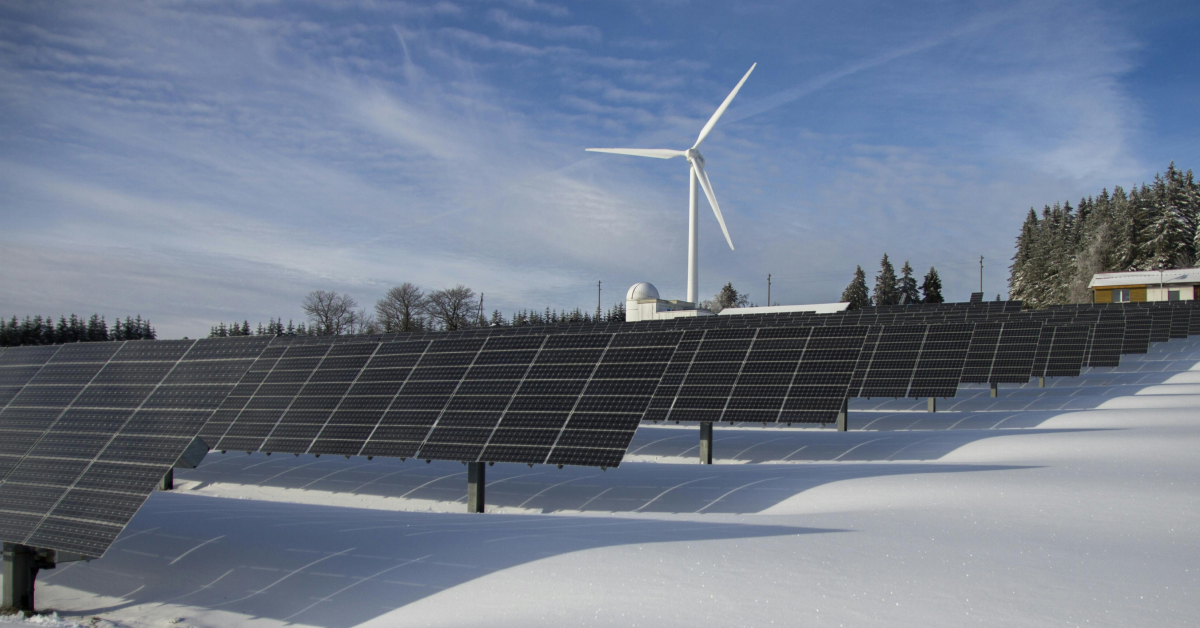Renewable energy sources like solar, wind, hydro, and geothermal power are the superheroes in this story. They help us achieve our goals by providing clean, endless energy that doesn't harm the environment. In this article, we'll look at how these renewable energy sources help create a more sustainable world by benefiting the environment, boosting the economy, and improving social equality.
UN Report
A UN report highlights the urgent need to shift away from fossil fuels and embrace alternative energy sources that are clean, accessible, affordable, sustainable, and reliable, such as the sun, wind, water, waste, and heat from the Earth. Currently, about 29% of our electricity comes from renewable sources, which have become the cheapest power option in most parts of the world, with prices dropping rapidly. By 2030, renewable energy could supply 65% of the world’s electricity, and by 2050, it could decarbonize 90% of the power sector.
This transition is essential not only for combating climate change but also for improving health and economic stability. Presently, 99% of people breathe air that exceeds safe quality limits, leading to severe health risks, and more than 13 million deaths each year are due to avoidable environmental causes, including air pollution. The economic impact is also staggering, with air pollution from fossil fuels costing $2.9 trillion annually in health and economic damages, equivalent to about $8 billion a day. Investing in renewable energy is thus a crucial step towards a cleaner, healthier, and more sustainable future.
Powering Jobs: The Renewable Energy Advantage
Investing in renewables is like planting seeds for job growth. For every dollar spent, three times more jobs sprout up compared to fossil fuels. The International Energy Agency (IEA) predicts that as we shift towards net-zero emissions, there will be more job opportunities in the energy sector. By 2030, while around 5 million jobs in fossil fuel production might fade away, a whopping 14 million fresh roles could bloom in clean energy, leading to a net gain of 9 million jobs.
But that's not all. Energy-related industries would need another 16 million hands-on-deck. These roles could range from crafting electric vehicles to making super-efficient appliances or diving into cutting-edge technologies like hydrogen power. This adds up to over 30 million new jobs by 2030 in clean energy, efficiency, and low-emission technologies.
However, ensuring a fair transition is key. We must prioritize people's needs and rights during this energy shift to ensure that no one is left behind.
Renewable energy is essential for economic growth of country
In 2022, about $7 trillion was spent supporting the fossil fuel industry, encompassing various forms of financial aid such as direct subsidies, tax breaks, and the hidden costs associated with health and environmental damages not reflected in the price of fossil fuels. In stark contrast, the shift towards renewable energy demands an investment of approximately $4.5 trillion annually until 2030, covering advancements in technology and the development of necessary infrastructure to achieve net-zero emissions by 2050. By 2030, the world could potentially save up to $4.2 trillion annually by curbing pollution and addressing climate change.
Moreover, renewable energy technologies offer efficiency and reliability, fostering a more stable energy system less susceptible to market shocks. This diversification of power sources not only enhances resilience but also bolsters energy security. However, many countries will require financial and technical support to facilitate a successful transition towards renewable energy.
PrivateCourt Applauds The Green Yodha Event: Advocating for Sustainable Progress
PrivateCourt is excited about ‘’The Green Yodha’’ event organized by Schneider Electric and CNBC TV18 , that was held on October 18, 2023, in Mumbai which promoted sustainability and carbon footprint reduction. This initiative is crucial as businesses worldwide strive towards cleaner energy and environmental responsibility. PrivateCourt supports the Schneider Sustainability Impact goals, emphasizing the importance of large organizations prioritizing carbon emission reduction and societal progress while maintaining profitability. We believe that achieving sustainability targets requires bold action and modernizing the economy to ensure consistent progress towards a greener future and limiting global temperature rise.
PrivateCourt advocates for a balance between economic growth and environmental responsibility, stressing the need for innovative solutions to reduce carbon emissions while advancing societal well-being. Through collective efforts and bold measures, we can work towards achieving sustainability objectives and safeguarding the planet for future generations.
keywords: renewable energy development process, renewable energy is primary or secondary, renewable energy benefit the environment, energy is essential for economic growth of country, renewable energy impact on India economy, renewable energy is future, renewable energy development in india, renewable energy for sustainable development in india, solar energy is a renewable resource, renewable energy requirements

